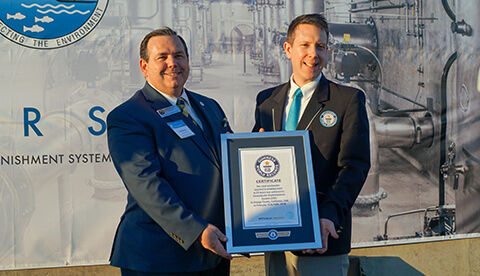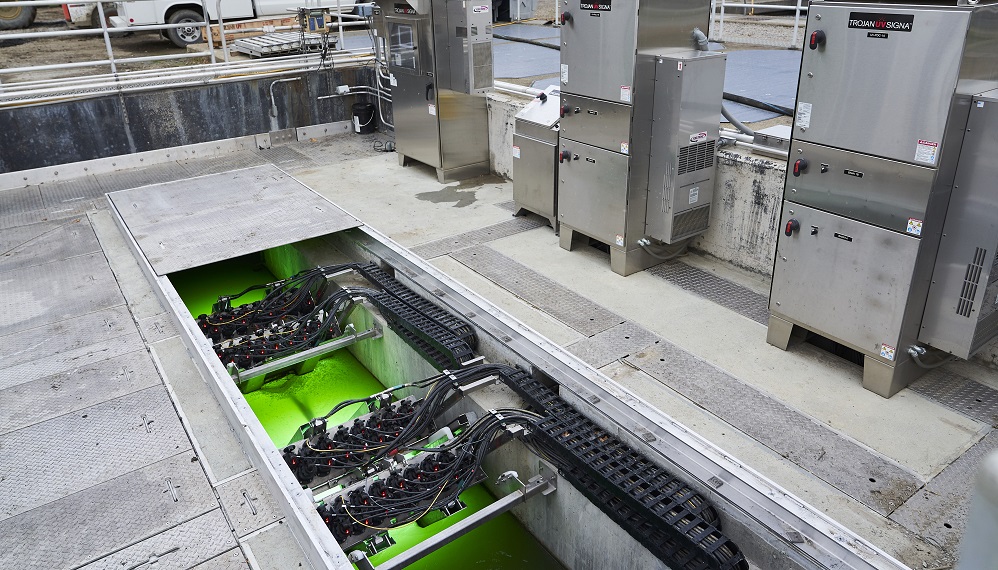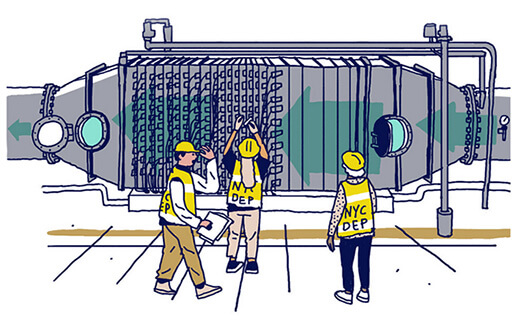RES’EAU WaterNET – Community Circle Approach To First Nations Water Challenges
Trojan Technologies is dedicated to improving the state of our global environment. We achieve this, in part, by paying close attention to our social, environmental and ethical responsibilities at the community level, as strong communities are the building blocks to a better future.
In Canada alone, over six million people rely on small and rural water systems for drinking water. Globally, this number stretches to 2.5 billion people.
In addition to being remotely located, small water treatment systems are often under resourced, making it difficult to install systems, especially if they require highly trained operators. The result is an increased risk of illness from drinking inadequately treated water and a high number of Boil Water Advisories.
To help tackle this situation, in 2008 Trojan Technologies began a partnership with RES’EAU WaterNET, a collaborative research program that is part of Canada’s Natural Sciences and Engineering Research Council (NSERC).
RES’EAU is Canada’s first and only collaborative research initiative devoted to meeting clean water demands in small, rural communities.
RES’EAU aims to protect the state of small, rural, and First Nations communities by producing game-changing water treatment solutions, based on the development and deployment of appropriate technologies and community stakeholder involvement.
The Community Circle Approach
In 2013, RES’EAU began a five-year, $7 million program to refine and expand upon its community-centric, impact-focused research programs – otherwise, known as Community Circles. There are currently six community circles located across British Columbia, each focused on addressing the specific needs of the community.
Adapted from First Nations’ traditional approaches, Community Circles are real-life environments where communities, government agencies, researchers and other relevant partners co-create solutions to water challenges.
Dr. Bill Cairns, PhD, Chief Scientist Emeritus, Trojan Technologies, and Chair of the Board for RES’EAU, states:
“In First Nations communities, historically everyone must buy into a solution before it is implemented. This is especially important when dealing with water treatment technologies as water has cultural and historic relevance to First Nations Communities, and new technologies may require new thinking and acceptance.”
At RES’EAU, this inclusiveness manifests directly in the research process by putting stakeholders from the communities at the heart of the innovation cycle, incorporating research insights at the early stages of development.
It is through RES’EAU’s engaging community circle approach that the community, researchers, and others involved are able to determine what solutions are best suited for each community, measuring success not only by technological advancement, but also by a community and social achievement.
The RES’EAU Pilot Trailer
In addition to Dr. Cairn’s participation with the board, Trojan has been involved in a variety of projects and research initiatives with RES’EAU, including helping to launch their first mobile pilot trailer.
The mobile unit is used as a convenient way to make different technologies, including UV, available to individual communities and their water treatment system operators. This ultimately helps everyone involved become aware of various technologies’ operational details, and demonstrates the technologies’ performance on the water qualities encountered in different communities.
Utilizing UV technology, as well as filtration and ion exchange, the mobile unit is able directly to evaluate various technological process options that could resolve a community’s water problems.
Along with the mobile unit, we are also involved in a pilot study examining the effectiveness of point-of-entry (POE) water treatment in First Nation communities. POE treatment systems may be an option for small and remote communities where central treatment is not affordable.
RES’EAU & UV Inactivation
UV technology has been an integral part of the research process at RES’EAU since day one. In addition to UV’s ability to inactivate microorganisms and meet water treatment standards, UV technology is often more culturally acceptable and/or more practical to operate than chemical treatment technologies such as chlorination. The added benefit is that no by-products are generated with the use of UV, whereas significant by-products can result with the use of chlorine. In addition, in many remote communities, shipping in chemicals such as chlorine can be problematic.
By first understanding the needs of the community, solutions that meet both the technological and social definition of success have been derived. This model of problem-solving has led to international recognition in research communities, and has the potential to be adopted globally in addressing the problems of small and remote communities
The work of RES’EAU WaterNET is another important reminder of how success in the water industry will come only from multidisciplinary engagement. The Community Circle Approach demonstrates the importance of prioritizing communication with all stakeholders, and it is this holistic approach to research that leads to meaningful and sustainable results.
Featured Posts
First Potable Reuse Demo Plant in Europe uses Trojan UV AOP
Trojan is proudly part of the Consorci d'Aigües Costa Brava Girona’s AIGUANEIX water purification project Trojan Technologies is excited to share that we’re part of Diputació de Girona and Consorci d'Aigües Costa Brava Girona’s AIGUANEIX water reuse pilot project at...
Trojan Technologies Opens First U.S. Distribution Facility in Grand Rapids, Michigan
On March 3, 2025, Trojan Technologies celebrated the grand opening of its first U.S. distribution center in Grand Rapids, Michigan. This strategic expansion underscores the company's dedication to enhancing customer experience and optimizing the delivery of its...
Veralto Enters Agreement to Purchase AQUAFIDES
WALTHAM, Mass., Feb. 17, 2025 /PRNewswire/ -- Veralto Corporation (NYSE: VLTO) (the "Company"), a global leader in essential water and product quality solutions dedicated to Safeguarding the World's Most Vital Resources™, announced the signing of a definitive...







